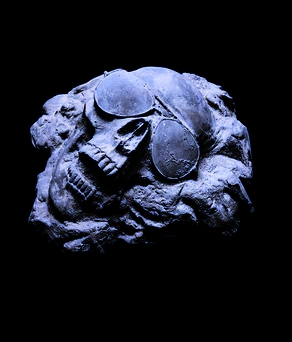[Picture of text that reads:]
Years ago, anthropologist Margaret Mead was asked by a student what she considered to be the first sign of civilization in a culture. The student expected Mead to talk about fishhooks or clay pots or grinding stones.
But no. Mead said that the first sign of civilization in an ancient culture was a femur (thighbone) that had been broken and then healed. Mead explained that in the animal kingdom, if you break your leg, you die. You cannot run from danger, get to the river for a drink or hunt for food. You are meat for prowling beasts. No animal survives a broken leg long enough to heal.
A broken femur that has healed is evidence that someone has taken the time to stay with the one who fell, has bound up the wound, has carried the person to safety and has tended the person through recovery. Helping someone else through difficulty is where civilization starts, Mead said


Human exceptionalism sets humans apart from nature, it’s a belief that denies that we too are a part of the ecosystem and dependant on it, which leads to a lack of care for said ecosystem, which will lead to an inevitable collapse of said ecosystem (it can still collapse if we care for it, but if we don’t, then it’s inevitable and faster). Which will lead to huge problems for humans,because contrary to the belief of human exceptionalism, we are not exceptional, we are still very much dependant on nature and our environment.
I did a quick google search and there’s loads of literature on the dangers of the human exceptionalism belief, so if you want to read more, just Google “dangers of human exceptionalism”.
I consider myself a smart monkey, but it’s not because I’m smart, that I’m no longer a monkey.